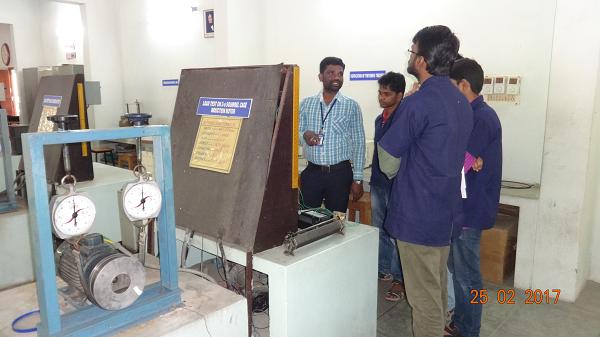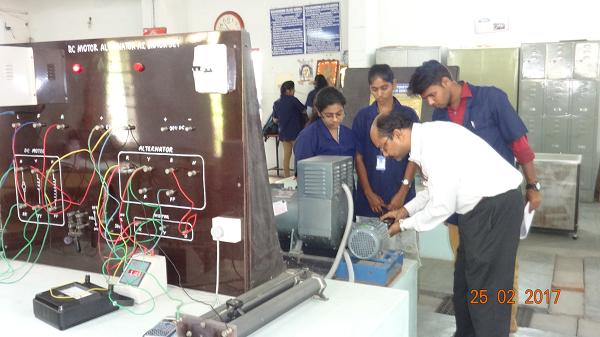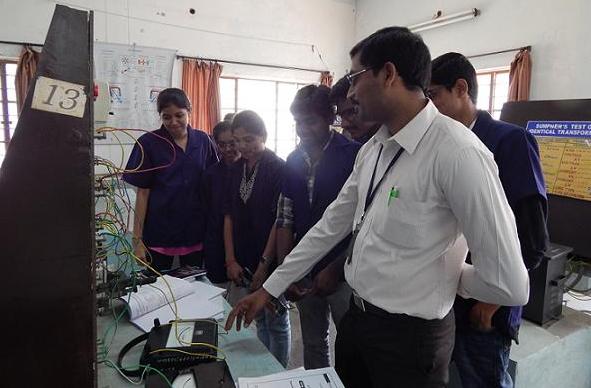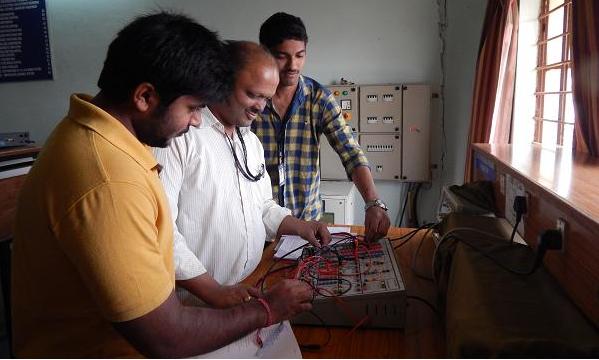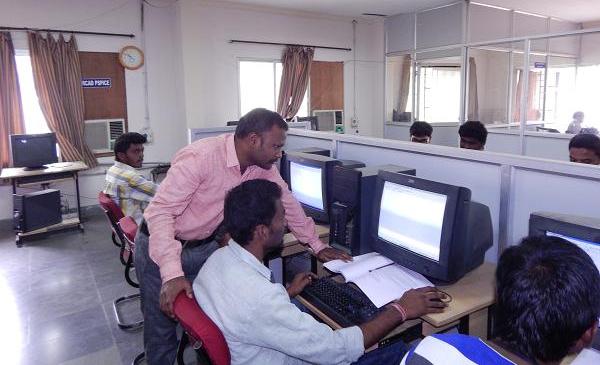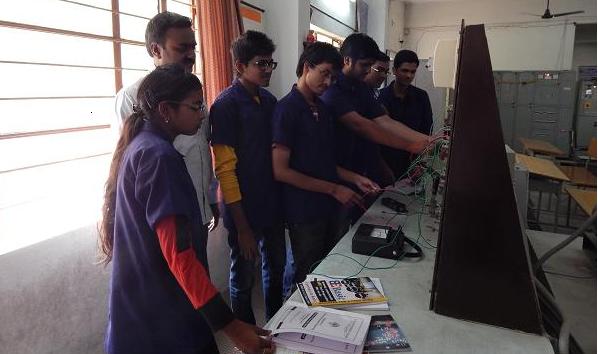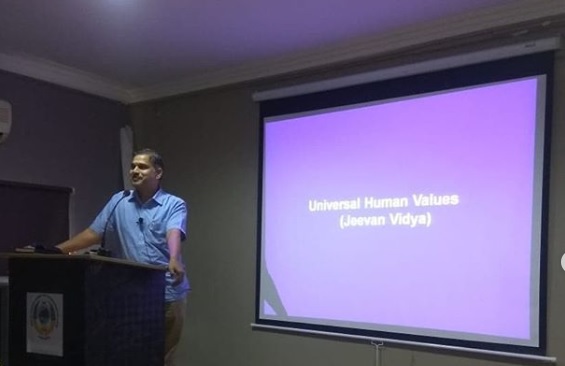Electrical and Electronics Engineering Department
| R & D Citations | Workshops & Guest Lectures Organised |
| Department News Letters | Academic Calenders |
The Department has started various student professional societies like IE, ISTE ,IEEE- PES Student chapters to enhance and extend their knowledge & make themselves in par with present developing world. The placement record of the Department has always been impressive.
Vision
To impart knowledge and prepare the students to become committed professionals with human values.
Mission
The department strives to provide the engineering foundation as well as professional, innovative and leadership skills to the students through the following activities:
- Provide sound foundation in the areas of power systems, drives and electronics and allied engineering areas.
- To create an ambiance that provides personalized and supportive environment to make learning joyful and stimulating.
- Encourage design and development of electrical systems promoting innovation and entrepreneurial skills.
- Inculcate communication skills, lifelong learning, ethics in professional practices and societal responsibility.
Program Educational Objectives
Electrical and Electronics Engineering is a broad discipline that incorporates skills and expertise in the areas which are essential to most sectors of industry.Bachelors program in Electrical and Electronics Engineering in the college is aimed at preparing graduates who will
- Demonstrate technical competence in identifying, formulating, analysing, and creating Electrical engineering solutions
- Emerge as competent technologist, professionals in electrical industry, government, academia, research, entrepreneurial pursuit and consulting firms.
- Render the needs of the society as morally responsible Electrical and Electronics Engineer with proven expertise.
Program Outcomes
- Engineering Knowledge: Apply the knowledge of mathematics, science, engineering fundamentals, and an engineering specialization to the solution of complex engineering problems.
- Problem analysis:Identify, formulate, review research literature, and analyze complex engineering problems reaching substantiated conclusions using first principles of mathematics, natural sciences, and engineering sciences.
- Design / Development of solutions:Design solutions for complex engineering problems and design system components or processes that meet the specified needs with appropriate consideration for the public health and safety, and the cultural, societal, and environmental considerations.
- Conduct investigations of complex problems: Use research-based knowledge and research methods including design of experiments, analysis and interpretation of data, and synthesis of the information to provide valid conclusions.
- Modern tool usage:Create, select, and apply appropriate techniques, resources, and modern engineering and IT tools including prediction and modelling to complex engineering activities with an understanding of the limitations.
- The engineer and society: apply reasoning informed by the contextual knowledge to assess societal, health, safety, legal and cultural issues and the consequent responsibilities relevant to the professional engineering practice.
- Environment and sustainability:Understand the impact of the professional engineering solutions in societal and environmental contexts, and demonstrate the knowledge of, and need for sustainable development.
- Ethics:Apply ethical principles and commit to professional ethics and responsibilities and norms of the engineering practice.
- Individual and team work:Function effectively as an individual, and as a member or leader in diverse teams, and in multidisciplinary settings.
- Communication:Communicate effectively on complex engineering activities with the engineering community and the society at large, such as, being able to comprehend and write effective reports and design documentation, make effective presentations, and give and receive clear instructions.
- Project management and finance:Demonstrate knowledge and understanding of the engineering and management principles and apply these to one’s own work, as a member and leader in a team, to manage projects and in multidisciplinary environments.
- Life-long learning:Recognize the need for, and have the preparation and ability to engage in independent and life-long learning in the broadest context of technological change.
Program Specific Outcomes are
· Graduate will be able to demonstrate an ability to analyze, design and provide an engineering solution in the areas related to Electrical and Electronics Engineering.
· Graduate will demonstrate an ability to design, simulate and develop electrical and electronic products using Electronic Design Automation (EDA) tools.
 The BE(EEE) Course is Provisionally Accredited by National Board of Accreditation for three years with effect from 9th, Jun 2018.
The BE(EEE) Course is Provisionally Accredited by National Board of Accreditation for three years with effect from 9th, Jun 2018.


